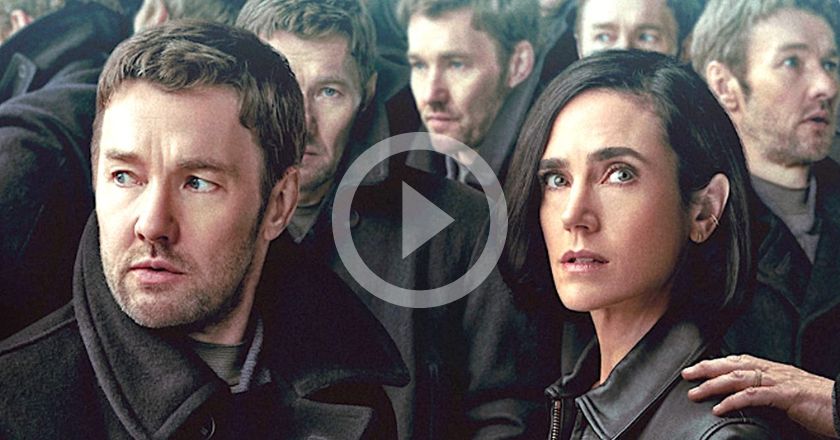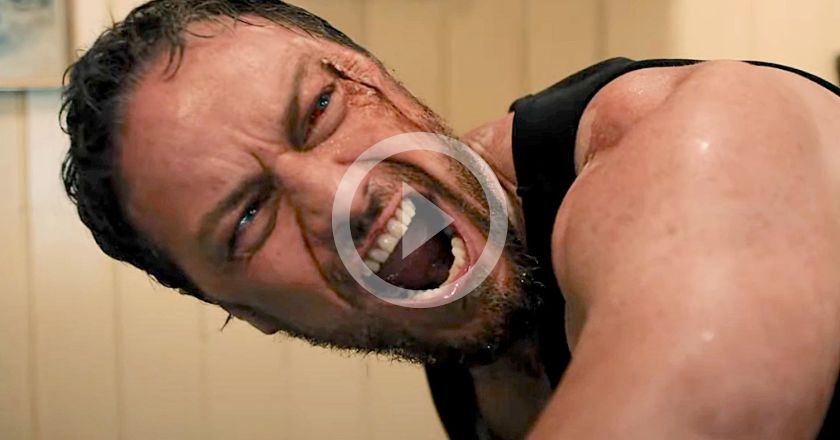
A young Yorkshire man, Johnny (Josh O’Connor), is burdened with the responsibility of taking over his family’s farm when his father suffers a debilitating stroke, and with his life’s ambitions snuffed in a single blow, he finds solace in alcohol. He works, drinks, sleeps and repeats while his friends move on to better things. He also struggles with his own identity and sexuality in a small rural community that keeps a conservative stiff upper lip. Johnny’s life, however, takes an unexpected turn when his family employs a Romanian farm-hand, Gheorghe (Alec Secareanu), and what unfolds is a story of self-discovery, personal responsibility and sexual liberation.
God’s Own Country presents a bleak, yet earnest, portrait of the rural life and follows its characters from an observational point of view. The first act has the audience watching from afar, like a fly on the wall, as Johnny’s circumstances are established. The camera holds its focus and allows the day-to-day farming routines to flow naturally, while the extent of his alcoholism is captured in all of its repulsive ugliness. It isn’t until the arrival of Gheorghe that the film begins to hone in on the true emotional toll that his unwanted life is taking, at which point an unexpected romance begins to overwhelm him.
There is an obvious personal investment in this moving tale, and in fact, writer-director Francis Lee drew inspiration from his own life to tell the story of Johnny and Gheorghe. In doing so, he has crafted a sincere and uncompromising depiction of sexual repression, forbidden love and sacrifice.
O’Connor headlines the film with a fearless performance that is as frustrating as it is inspiring. His portrayal of Johnny is overwhelming and raw. Seemingly nothing is off limits as he bares his soul and commits his body to all of the elements, as well as the confronting realities of the farming life. I try to resist the term “journey” when explaining character development in my reviews, but in this instance it feels appropriate. Johnny’s journey and overriding character arc is brilliantly woven throughout the narrative, his story evolving so subtly that you hardly notice the change at all. And yet, when reflecting upon the film’s conclusion, you realise just how far he has come. It’s a wonderfully written evolution that is performed with uninhibited precision.

As Gheorghe, the Romanian worker who helps Johnny navigate his way through adversity, Secareanu delivers a performance that is equally courageous and provides the optimistic counter-balance and emotional connection required to make the love story rise amongst the dreary, foreboding landscapes. Veteran actors Ian Hart and Gemma Jones play the father and grandmother, whose own circumstances have them facing an uncertain future with a measured amount of fear, anxiousness and indignity. Theirs are understated performances, which unfold in the shadow of Johnny and Gheorghe’s story. Lee affords them the same amount of care as he does the leads and gives them an engaging character-arc of their own.
God’s Own Country also paints a sombre, yet beautiful, picture of the Yorkshire landscape, with grey skies and rain-swept farmlands as much a part of the narrative as the characters themselves. The score is almost non-existent, with Lee’s direction taking a more simplistic and honest approach to the lifestyle. Whether it’s graphic depictions of animal birthing, confronting images of butchery or a jarring mud-lathered sexual encounter, Lee fills every frame of his film with compelling content that has little need for the heightened emotion that a score would bring. He chooses realism and sincerity, which makes his storytelling genuine, heartfelt and powerful.
As much as I have heaped on the praise, it must be said that the final act of the film is somewhat of a let down. Despite the characters’ outcomes and the narrative resolution holding weight, the final moments feel rushed and uncharacteristic of everything that came before. To be clear, the film ends precisely as I would have hoped, I only wish that it hadn’t conceded to a few fleeting moments of cliché before signing off. Nevertheless, who am I to let a small qualm mar what is, in all other respects, a wonderful, compelling and fulfilling film?







